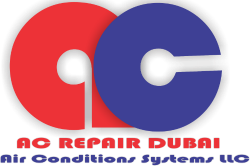How do I know if my AC compressor is malfunctioning?
In the sweltering heat of summer, your air conditioning system becomes an invaluable ally, diligently working to keep your indoor environment cool and comfortable. At the heart of this system lies the compressor, a crucial component responsible for circulating refrigerant and facilitating the cooling process. However, like any mechanical device, AC compressors are susceptible to wear and tear, potentially leading to malfunction and system breakdown. Recognizing the signs of a failing compressor is essential for timely intervention and preventing further damage to your cooling system. In this comprehensive guide, we delve into the various indicators that suggest your AC compressor may be experiencing issues, empowering you to take proactive measures to address them effectively.
Introduction to AC Compressor Functionality
Before delving into the signs of compressor malfunction, it’s essential to grasp the fundamental role that this component plays within your air conditioning system. The compressor serves as the proverbial heart of the AC unit, responsible for pressurizing and circulating refrigerant gas throughout the system. This process initiates the transfer of heat from the indoor air to the outdoor environment, facilitating the cooling of your living or working space. Essentially, the compressor acts as a pump, maintaining the refrigerant flow necessary for efficient heat exchange and temperature regulation.

Signs of AC Compressor Malfunction How do I know if my AC compressor is malfunctioning?
1. Warm Airflow
One of the most apparent indicators of a malfunctioning compressor is the emergence of warm or lukewarm air from your AC vents. Typically, this signifies an inability of the compressor to adequately pressurize the refrigerant gas, hindering its ability to absorb heat from the indoor air. Consequently, instead of experiencing the desired cool breeze, occupants are subjected to air that fails to undergo the necessary cooling process, indicative of a compressor issue.
2. Unusual Noises
Unusual or alarming noises emanating from your air conditioning system can often serve as early warning signs of compressor malfunction. These noises may manifest as grinding, screeching, or banging sounds, indicative of internal component wear, misalignment, or impending failure. The compressor relies on various mechanical parts and bearings to function smoothly, and any disruption or deterioration in these components can result in audible disturbances that warrant immediate attention.
3. Inconsistent Cooling
A malfunctioning compressor can significantly compromise the cooling efficiency of your air conditioning system, leading to inconsistent temperature regulation throughout your indoor space. You may notice areas that remain uncomfortably warm despite your AC running at full capacity, or a noticeable disparity in temperature between different rooms. Such inconsistencies often point to underlying compressor issues, such as reduced refrigerant flow or inadequate compression, impeding the system’s ability to maintain desired temperature levels effectively.
4. Frequent Cycling
Excessive cycling, wherein the AC system rapidly turns on and off at short intervals, can indicate compressor malfunction among other potential causes. This phenomenon, known as short cycling, often occurs when the compressor struggles to maintain optimal pressure levels within the system. As a result, the compressor may shut down prematurely, only to restart shortly afterward in an attempt to compensate for the perceived deficiency. Short cycling not only diminishes energy efficiency but also places undue strain on the compressor, hastening its deterioration over time if left unaddressed.
5. Refrigerant Leaks
Refrigerant serves as the lifeblood of your air conditioning system, facilitating the heat exchange process that enables cooling. However, if your compressor is experiencing issues, it may contribute to refrigerant leaks, compromising the overall functionality of the AC unit. Signs of a refrigerant leak include hissing sounds near the compressor, icy buildup on refrigerant lines or coils, and a noticeable decline in cooling performance. Left unchecked, refrigerant leaks can exacerbate compressor problems and lead to extensive system damage if not promptly resolved.
6. Elevated Energy Consumption
A malfunctioning compressor can significantly impact the energy efficiency of your air conditioning system, resulting in elevated utility bills that reflect increased energy consumption. As the compressor struggles to maintain optimal performance levels, it may draw more power to compensate for inefficiencies or compensate for diminished cooling capacity. Monitoring your energy bills for unexplained spikes or fluctuations can provide valuable insight into potential compressor issues, prompting further investigation and diagnostic evaluation to pinpoint the underlying cause.
7. Tripped Circuit Breaker
If your AC system’s compressor repeatedly trips the circuit breaker or causes electrical disruptions, it’s a clear indication of underlying issues that demand immediate attention. Electrical problems within the compressor, such as short circuits or overloads, can trigger safety mechanisms designed to prevent electrical hazards. While a tripped circuit breaker may temporarily restore power, persistent occurrences necessitate professional inspection and diagnosis to identify and rectify the root cause of the problem.
8. Visual Inspection
Performing a visual inspection of your air conditioning system can reveal telltale signs of compressor malfunction, such as visible damage, corrosion, or oil leaks. Examine the compressor unit for any signs of oil stains, which may indicate refrigerant leaks or internal component degradation. Additionally, inspect the surrounding area for loose or damaged electrical connections, as well as debris accumulation that could impede airflow and exacerbate compressor issues.
Conclusion: Taking Action
In conclusion, recognizing the signs of a malfunctioning AC compressor is crucial for maintaining the efficiency, performance, and longevity of your cooling system. By remaining vigilant for indicators such as warm airflow, unusual noises, inconsistent cooling, and elevated energy consumption, you can identify potential compressor issues early and take proactive measures to address them effectively. Whether through professional inspection, repair, or replacement, prioritizing the health and functionality of your compressor ensures uninterrupted comfort and peace of mind, even amidst the sweltering heat of summer.



